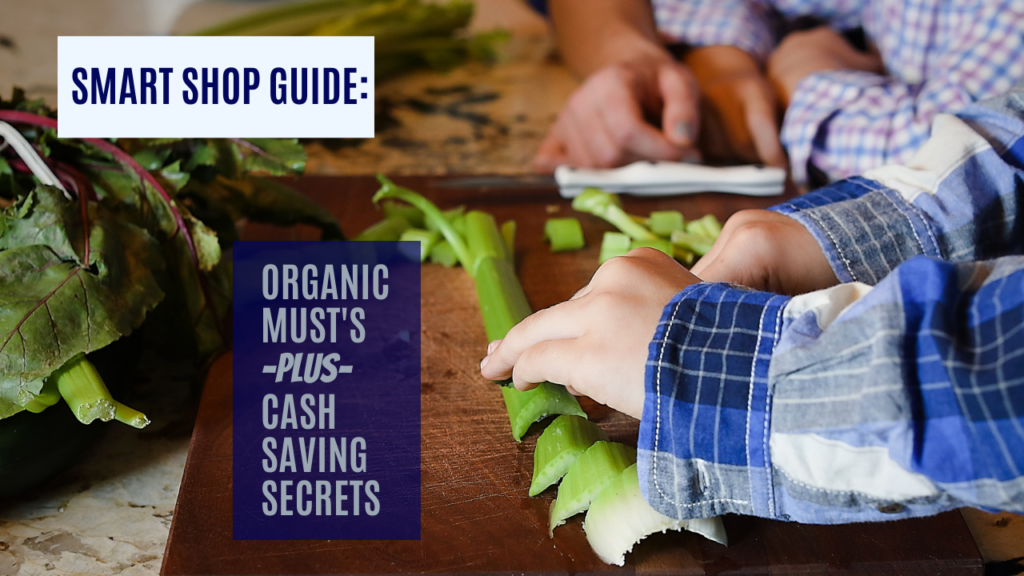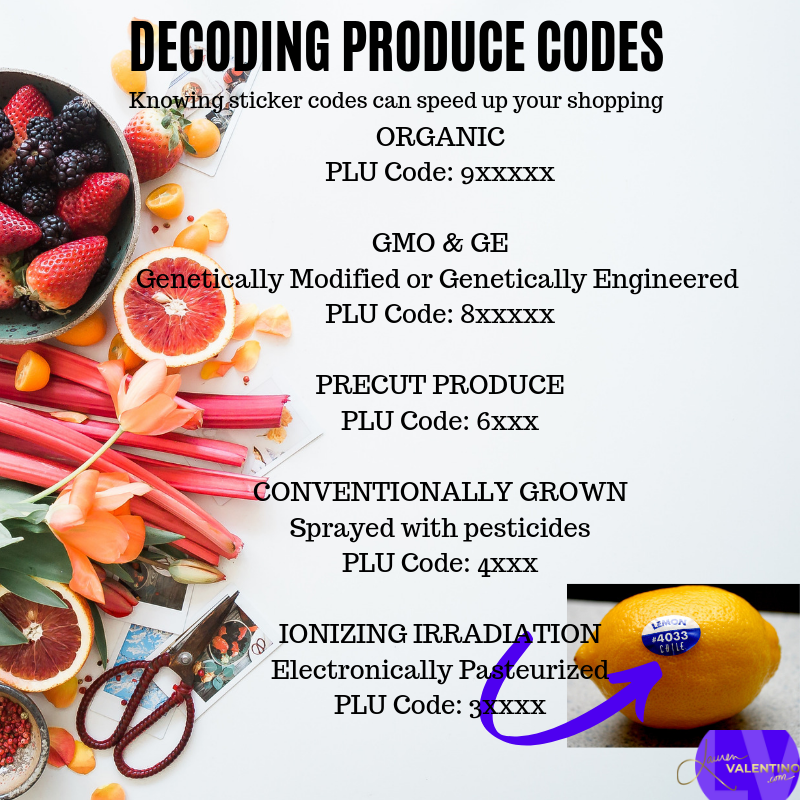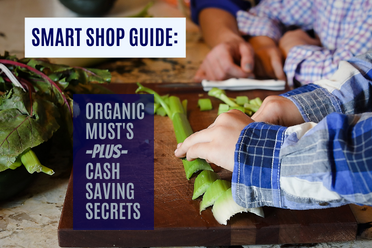
LV’s Smart Shop Guide:
Organic Musts & Cash Saving Secrets!
I’m excited to take you into my ‘smart shoppers brain’ for the first time. I’m going to give you an inside look on how to make smart choices for your family without busting your piggy bank AND without sitting in the aisle reading every label! I’m showing you EXACTLY what to look for when shopping for clean options, AND in priority order!
The more you learn about the food industry in the US the more concern you’re likely to have about the foods you put in your body. Non-organic food poses a health threat via three main categories; pesticides, hormones, and antibiotics.
Pesticides are poisons designed to kill bugs. And for humans, it’s just low dose poison. We would never knowingly eat poison, that’s lunacy!
Steroid hormones and antibiotics are given to animals to speed growth and production and to keep livestock from nasty infections while living in close quarters. These three ‘toxic touches’ have been directly linked to neurological problems, infertility, asthma, cancer, allergies, ADHD, rashes, and much more.
When we know better, we choose better. You can’t be faulted for things that you’re unaware of, but knowing a few details will protect your health + the health of everyone bellying up to your kitchen table.
However, I will be the first to admit that if unmanaged, the grocery bill can be one of the largest bills in the household. I once heard the saying that I appreciated, “you can either pay the farmer and be well, or you can pay the doctor because you’re ill.”
I help my clients navigate eating clean while not busting their budget, and I want to share with you how to do the same. Without having to grow your own backyard garden!

With this my priority list, HOWEVER items with the most frequency increase in importance, SO your list may look a little different. For example, if you’re drinking coffee or tea multiple times per day then that may need to move up in your list of importance.
Also, know that every clean choice adds up! Do what you can with the budget you have and pat yourself on the back for the clean choices you’re able to make!
HERE is the 2019 updated quick glance guide you should follow to avoid pesticides in fresh produce! The “Dirty Dozen” are items that you should buy organic.
According to the EWG (Environmental Working Group), 70% of the produce sold in the U.S. comes with pesticide residues. The USDA has found 225 different pesticides and pesticide breakdown products on common fruits and vegetables that we eat daily. Before the EWG performed their testing, all produce was washed and peeled. This data proves that simple washing doesn’t remove these chemicals.

On the flip side, this is the product list where you can feel ok about saving some cash, as it’s unlikely to have pesticides and herbicides. This list has few if any detection of pesticide residues.

Now, let’s save some moola! Carving out a little bit of upfront time to learn your area can save you massive amounts of money annually!
Find and use healthy coupons:
- Whole Foods, Fresh Market, Trader Joe’s, and Earth Fare have weekly coupons for clean deals throughout the store. Get on their lists. Each of these locations has days of the week where their organic meats are more than 50% off. Stock up, and freeze the extra!
- Google search organic coupon sites. I use All Natural Savings.
- I use Simply Organic for most of my spices, they run great coupons on their site as well.
Shopping:
- Buy in bulk. This is an area I walked past for years until I noticed the savings! Invest in some glass mason jars or reusable containers and bring them into the store to fill. This saves you tons of money plus you’re doing great things for mother earth!
- Costco has stepped up its organic inventory at unbeatable prices.
- Always buy staple items when they’re on sale.
- Buy the whole animal and freeze portions you don’t use. For example, buying a whole organic beef tenderloin at Fresh Market is 14.99 vs. buying the fillets at 21.99 an lb. 😉
- Local Famers Markets and food stands will support local and save you money. Check out LocalHarvest.org
- Foods in season are always cheaper.
- Be the last person to leave the farmers market at the end of the day or weekend. Prices are cut so that those items don’t have to be packed up and carried back to farms.
- Order Organic Dry foods online.
*Here is a quick glance guide to avoiding ‘Dirty’ products!

At Home:
- Always have some ‘on sale’ meats in the freezer.
- Have a plan. Making a menu helps prevent wasting food.
- Save money by making things at home. Brewing coffee, juice smoothies, salad bars, protein shakes, snack foods, etc. are all amazing on the fly but will dent the long term budgeting.
Questions? Drop them below!
Find this guide helpful? Please LIKE and SHARE!

